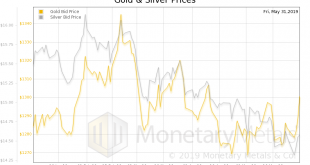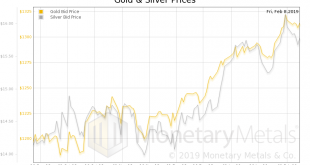For over a year the federal funds rate has increased relative to the rate the Fed pays on excess reserves. In mid September 2019, the federal funds rate increased abruptly, triggering the Fed to inject fresh funds. In parallel, the repo market rates spiked dramatically. On the Cato Institute’s blog, George Selgin argues that structurally elevated demand collided with reduced supply. He mentions explicit and implicit regulation; Treasury General Account (TGA) balances; the NY Fed’s foreign...
Read More »How to Prevent Cash Hoarding when Interest Rates are Strongly Negative
On swissinfo.ch, Fabio Canetg explains how the Swiss National Bank prevents banks from hoarding cash rather than holding reserves at the central bank (which pay negative interest). He points to the following sentence in the SNB’s December 2014 press release (my emphasis) and he speculates that banks could, in principle, implement similar schemes to keep depositors from withdrawing cash: The threshold currently corresponds to 20 times the minimum reserve requirement for the reporting...
Read More »Dollar Supply Creates Dollar Demand, Report 2 June
We have been discussing the impossibility of China nuking the Treasury bond market. We covered a list of challenges China would face. Then last week we showed that there cannot be such a thing as a bond vigilante in an irredeemable currency. Now we want to explore a different path to the same conclusion that China cannot nuke the Treasury bond market. To review something we have said many times, the dollar is borrowed....
Read More »“Moderne monetäre Theorie: Ein makroökonomisches Perpetuum mobile (The Macroeconomic Perpetuum Mobile),” NZZ, 2019
NZZ, April 25, 2019. PDF. Modern monetary theory (MMT) is neither a theory, nor modern, nor exclusively monetary. I discuss fallacies related to MMT. Dynamic inefficiency requires permanent, not transitory, r<g. For now, policy makers should rely on common sense rather than MMT.
Read More »“Moderne monetäre Theorie: Ein makroökonomisches Perpetuum mobile (The Macroeconomic Perpetuum Mobile),” NZZ, 2019
NZZ, April 25, 2019. PDF. Modern monetary theory (MMT) is neither a theory, nor modern, nor exclusively monetary. I discuss fallacies related to MMT. Dynamic inefficiency requires permanent, not transitory, r<g. For now, policy makers should rely on common sense rather than MMT.
Read More »“Die SNB schuldet den Pensionskassen nichts (Nothing the SNB Owes to Pension Funds),” NZZ, 2019
NZZ, March 13, 2019. PDF. Long-term real interest rates do not reflect monetary policy. In the recent past, monetary policy has contributed to lower fixed-income interest rates but also to higher returns on other asset classes. Complaining about low rates but not adjusting one’s portfolio makes little sense; there is no “financial repression.” If politicians want to subsidize pension funds they should contribute funds from the government budget rather than asking the central bank to...
Read More »“Die SNB schuldet den Pensionskassen nichts (Nothing the SNB Owes to Pension Funds),” NZZ, 2019
NZZ, March 13, 2019. PDF. Updated: Ökonomenstimme, March 22, 2019. HTML. Long-term real interest rates do not reflect monetary policy. In the recent past, monetary policy has contributed to lower fixed-income interest rates but also to higher returns on other asset classes. Complaining about low rates but not adjusting one’s portfolio makes little sense; there is no “financial repression.” If politicians want to subsidize pension funds they should contribute funds from the government...
Read More »What They Don’t Want You to Know about Prices, Report 10 Feb
Last week, in part I of this essay, we discussed why a central planner cannot know the right interest rate. Central planner’s macroeconomic aggregate measures like GDP are blind to the problem of capital consumption, including especially capital consumption caused by the central plan itself. GDP has an intrinsic bias towards consumption, and makes no distinction between consumption of the yield on capital, and...
Read More »AXA Stops `Vollversicherung’ Model
In the NZZ, Werner Enz reports that the insurance company AXA will stop offering “Vollversicherungen.” One motivation relates to the fact that the second pillar in the Swiss pension system is increasingly abused, with redistribution undermining supposedly “individual” accounts.
Read More »Jim Grant: “Markets Trust Too Much In The Presence Of Central Banks”
James Grant, Wall Street expert and editor of the renowned investment newsletter «Grant’s Interest Rate Observer», warns of the unseen consequences of super low interest rate and questions the extraordinary actions of the Swiss National Bank. Nearly ten years after the financial crisis, extraordinary monetary policy has become the norm. The financial markets seem to like it: Stocks are close to record levels...
Read More » Swiss Economicblogs.org
Swiss Economicblogs.org



